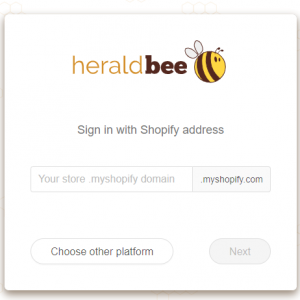The Real Cost of E-commerce Store with WooCommerce and Shopify
WooCommerce and Shopify are among the most popular platforms for building an online store available on the market. Both make it possible to quickly set up an account, build an online store and manage it effectively. What’s more, WooCommerce and Shopify provide these services for a fair price which is especially convenient for new and small e-commerce stores.
One of the Shopify pricing plans costs as little as 9$/month, while WooCommerce is free to use. But is it really that cheap to build an online store? There are some additional costs one needs to take into consideration when choosing any of those two platforms.
In this post, we’ll point out what are these additional costs and what is the real price for a fully functional e-commerce shop.
The price of a WooCommerce store
WooCommerce is a free, open-source plugin for a WordPress based website. It provides us with the possibility to add an e-commerce store to the existing site.
The plugin itself is free of charge, however, it’s not possible to install it without having a WordPress website. So, the most important additional costs are domain and hosting. Apart from that, many store owners decide to invest in other paid elements of the website, such as theme, other plugins and extensions or developer’s assistance. All those services aren’t mandatory but significantly improve the quality of the e-commerce store and are beneficial for the overall user experience.
Domain and hosting
Let’s start from the elements which are absolutely necessary for a WooCommerce store, namely domain and hosting. There are a lot of companies, which offer such services and depending on the one we choose, the price may differ. The average cost of a domain starts from $12/month, while the cost of hosting can oscillate between $3 to even $5000 for a month.
WooCommerce recommends a few hosting and domain’s providers which are integrated with WordPress. SiteGround, BlueHost and Pressable allow for quick and easy installation of WordPress and WooCommerce at the same time. They also provide users with a 24/7 support and many other benefits.
Themes
WordPress offers a broad range of free themes, many of which are integrated with WooCommerce plugin. Therefore it’s possible to build an online store without paying for a theme. This cost is completely optional.
However, we need to remember that free themes are simple and similar to each other, while their functions are limited. So if we want the shop to stand out from the competition it’s worth to invest in one of the paid themes. They come with a customer service from WordPress which makes it even more worthwhile. Theme price may vary from $20 to 100$/year.
Plugins and extensions
Other optional expenses are plugins and extensions which enable different store’s features like mail automation, contact with customers, live chat, payments and shipment, inventory tracking or website security. Many of them are free, but we recommend checking the paid ones as well. Some may be extremely useful for an e-commerce store (eg. Yoast SEO, ConvertPlug or Heraldbee). Plugins and extensions cost around $20-$100.
Shopify Store – price and additional costs
Shopify is a great alternative for WooCommerce if you don’t already have a WordPress website. This platform allows for creating a fully functional online store from scratch in just a few simple steps. Probably that’s why it’s one of the most well-known e-commerce platforms in the world.
Unlike WooCommerce, Shopify is not free. The company offers a few pricing plans, each tailored for different needs and users.
Shopify pricing plans
There are three main pricing plans available: Basic Shopify, Shopify and Advanced Shopify and they cost $29/month, $79/month and $299/month respectively if the payment is done monthly (a yearly payment results in 10% discount).
Shopify offers two other, less popular plans. First one, Shopify Lite, is the cheapest option (only $9/month) and doesn’t include e-commerce store but provides a user with tools needed to sell products via Facebook. Second one, Shopify Plus, is addressed to huge clients and the price is agreed individually.
Transaction fees
The cost of a Shopify plan is not all. Every pricing plan (except for Shopify Lite) includes additional costs, called transaction fees. Their value depends on the amount and the value of the transaction and of course, the chosen pricing plan. It’s between 2.4% + 30¢ and 2.9% + 30¢ from every transaction.
In case of using payment providers other than Shopify Payments (eg. PayPal), there’s an additional fee of 0.5%-2% of the turnover (only for card payments).
Domain and hosting
Opposite to WooCommerce, Shopify doesn’t require buying domain and paying for hosting. Every pricing plan includes a free domain .myshopify.com and a Shopify hosting. While the hosting service is completely fine, when it comes to a domain, many users decide to buy one that is not free, as usually these are more professional. Then, prices are the same as in case of WooCommerce, from around $12/year.
Apps
Shopify has a lot of applications integrated with stores created on this platform. Shopify App Store is full of useful apps of many categories such as orders and shipping, marketing, design or customer service. Some of them are free, but they may cost up to several hundred dollars. Heraldbee App is also integrated with Shopify.
Additional costs
In the end, we would like to mention two more services, which are entirely optional to pay for, but they can significantly affect the success of an e-commerce store.
Firstly, developers’ assistance. Even though it is possible to manage Shopify or WooCommerce store 100% unassisted, it’s worth to ask for help from an expert, at least at the beginning. This way you can avoid many obstacles and the shop gets to be professional and well-built.
Secondly, marketing. An online store cannot exist without its customers, so it’s absolutely necessary to draw their attention to your products, one way or another. All kinds of advertising expenses, such as for Google Shopping Ads or Facebook Ads are the key to achieving great sales results.









